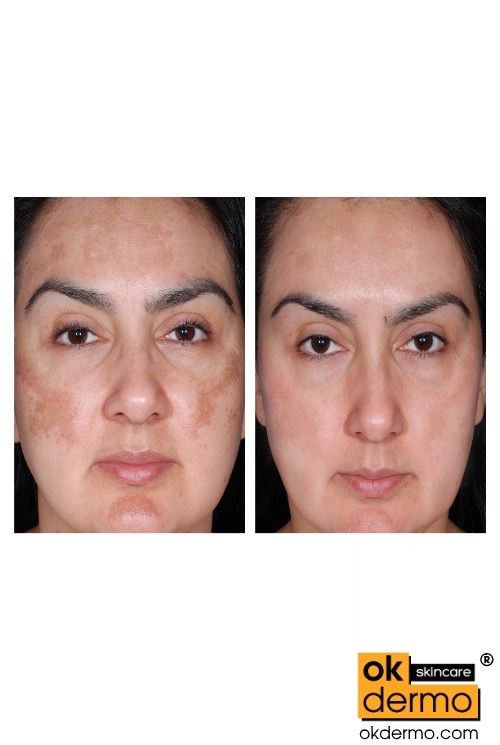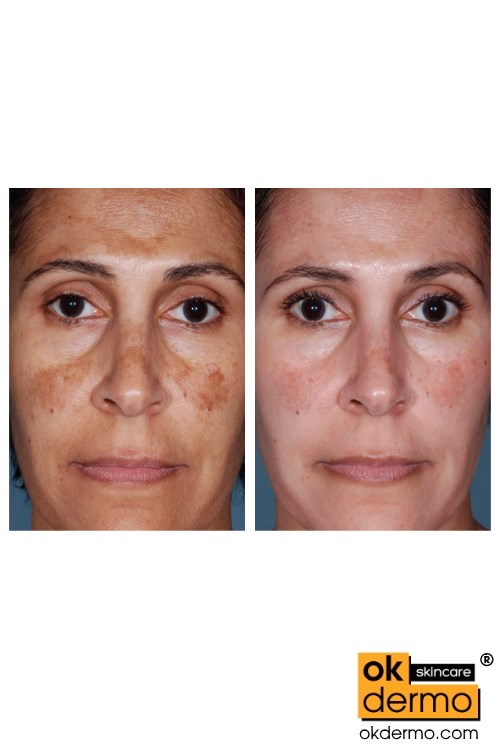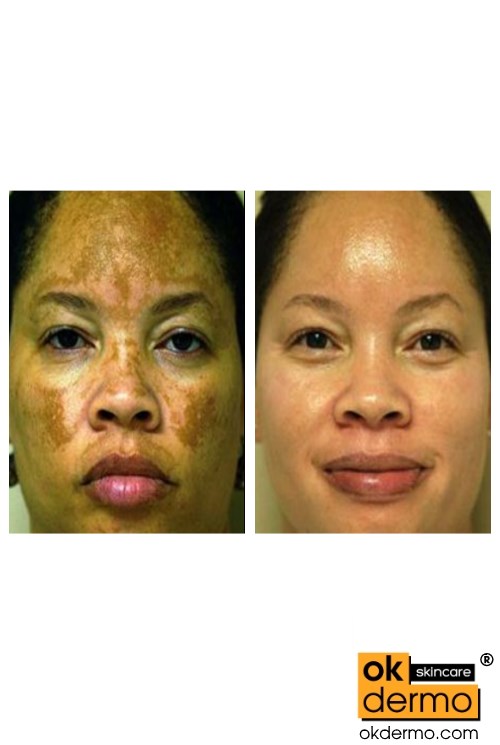Is hydroquinone the key to unlocking a flawless complexion, or is it a potential minefield of side effects? Hydroquinone, despite its controversial reputation, remains a powerful and effective tool for combating dark spots, melasma, and hyperpigmentation, offering a path towards a more even skin tone.
The pursuit of radiant, unblemished skin has led many down the path of hydroquinone, a topical skin-lightening agent that has sparked both praise and debate within the dermatology community. Its efficacy in reducing the appearance of dark spots and hyperpigmentation is undeniable, yet concerns about potential side effects and long-term use have tempered its widespread adoption. Understanding the intricacies of hydroquinone, from its mechanism of action to the proper application and maintenance strategies, is crucial for anyone considering incorporating it into their skincare regimen.
Before delving into the specifics of hydroquinone, it's essential to establish the context of its use and the individuals who can potentially benefit from it. The information and advice given here is for general informational purposes only and does not constitute medical advice. Always consult with a qualified healthcare professional for any health concerns or before making any decisions related to your health or treatment.
The journey with hydroquinone often begins with a dermatologist's consultation, where the suitability of this treatment is assessed based on individual skin type, the nature of the hyperpigmentation, and the overall health of the patient. For individuals with medium to dark skin tones, this consultation is particularly crucial, as they may be more susceptible to certain side effects. The dermatologist will consider factors such as the depth of the pigmentation, the presence of any underlying skin conditions, and the patient's medical history. This careful assessment ensures that hydroquinone is used safely and effectively.
Hydroquinone functions by inhibiting the enzyme tyrosinase, which is essential for melanin production. Melanin is the pigment responsible for skin color, and excessive production can lead to dark spots, uneven skin tone, and various forms of hyperpigmentation. By blocking tyrosinase, hydroquinone reduces the formation of new melanin and gradually lightens existing hyperpigmentation. This mechanism of action explains its effectiveness in treating conditions such as melasma, post-inflammatory hyperpigmentation (PIH), and sunspots.
The concentration of hydroquinone in topical formulations varies, with over-the-counter products typically containing 2% hydroquinone, while higher concentrations (up to 4%) are available by prescription. The choice of concentration depends on the severity of the hyperpigmentation and the individual's skin sensitivity. Dermatologists often start with lower concentrations and gradually increase them as tolerated. The duration of treatment also varies, but it usually lasts for a few months. A break is then recommended before restarting.
The proper application of hydroquinone is critical to maximizing its effectiveness and minimizing the risk of side effects. The general rule of thumb is to apply a thin layer to the affected areas after cleansing and toning, but before moisturizing. The application should be done at night, as hydroquinone can make the skin more sensitive to sunlight. This is why consistent use of a broad-spectrum SPF 30 or higher during the day is non-negotiable when using hydroquinone. This is not just to prevent the worsening of pigmentation, but also to protect the skin from potential damage. A gentle cleanser and a non-comedogenic moisturizer are also essential to prevent irritation and maintain the skin's barrier function. It's also prudent to temporarily cease using exfoliators and facial treatments while using hydroquinone.
The use of hydroquinone is not without its potential side effects. Common side effects include mild irritation, redness, itching, and dryness. More serious, but less frequent, side effects include ochronosis, a condition characterized by a bluish-black discoloration of the skin, which is often associated with long-term use of high concentrations of hydroquinone. This is why dermatologists recommend careful monitoring and intermittent use of hydroquinone.
The use of hydroquinone is not a permanent fix, and the results are not always lasting. Once hydroquinone is discontinued, the pigmentation can return, especially if preventative measures are not taken. That is why maintenance strategies are just as important as the treatment itself. Alternatives to hydroquinone, such as alpha arbutin, kojic acid, azelaic acid, and retinoids, can be used to maintain the results achieved with hydroquinone and prevent the recurrence of hyperpigmentation. Using these ingredients consistently, along with a good sunscreen, can help to maintain a clear and even complexion long after hydroquinone treatment. Other options include products containing ingredients such as Ferulic Acid, Alpha-Arbutin, and Vitamins A & C, which can be particularly beneficial. Furthermore, some individuals may choose to incorporate chemical peels or laser treatments into their maintenance routine.
When considering the use of hydroquinone, it's essential to weigh the potential benefits against the risks. For many individuals, the ability of hydroquinone to diminish the appearance of dark spots and hyperpigmentation outweighs the potential side effects, especially when used under the guidance of a dermatologist. However, a thorough understanding of the treatment's mechanisms, proper application, and maintenance strategies is essential for a safe and effective experience. Additionally, the information and advice given here is for general informational purposes only and does not constitute medical advice. Always consult with a qualified healthcare professional for any health concerns or before making any decisions related to your health or treatment.
Hydroquinone remains a powerful and often effective option in the fight against hyperpigmentation, but it should be approached with caution, knowledge, and the guidance of a qualified healthcare professional.



